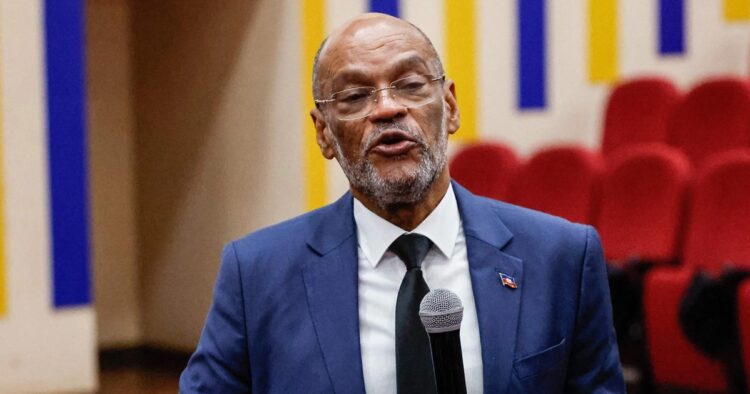Haitian Prime Minister Ariel Henry, who assumed office following the assassination of the country’s last president in 2021, has resigned from his position. This announcement came from Irfaan Ali, the President of Guyana and current chair of the Caribbean Community (CARICOM). Henry’s resignation coincides with the establishment of a transitional presidential council and the appointment of an interim prime minister.
The resignation follows Henry’s recent trip to Kenya, where he sought support for a United Nations-backed international security mission to combat armed gangs in Haiti. However, escalating violence in the capital, Port-au-Prince, during his absence left him stranded in Puerto Rico. Concerns over the legitimacy of Henry’s government, which came to power in the aftermath of the assassination, have been raised, leading to hesitancy among some countries to support his initiatives.
The newly formed transitional presidential council, announced by President Ali, will comprise representatives from various sectors of Haitian society. Its primary task is to swiftly appoint an interim prime minister and oversee the transition process leading up to the next elections in Haiti.
The United States, neighboring Dominican Republic, and other CARICOM members have been urged to play a significant role in supporting Haiti’s security efforts. This comes amidst a dire humanitarian crisis fueled by gang violence, which has led to internal displacement, food shortages, and widespread insecurity.
In response to the escalating crisis, the United States has pledged an additional $100 million to support international security efforts in Haiti, along with $33 million in humanitarian aid. However, the timeline for the approval and disbursement of these funds remains uncertain.
Haiti has been gripped by political instability and violence for years, with armed gangs exerting significant influence over various aspects of daily life. The resignation of Prime Minister Henry and the formation of a transitional council signal a pivotal moment in Haiti’s ongoing struggle for stability and democracy.

















Comments